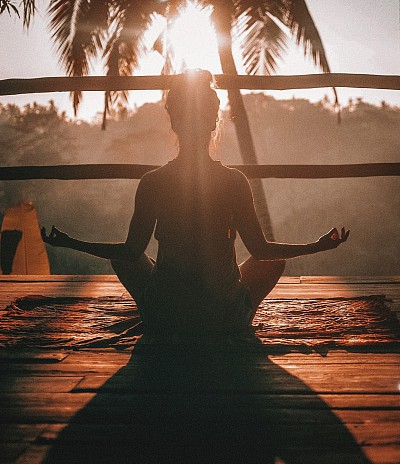Unlock your creative potential with support in mental health, mentoring, and community. Welcome to your artsy,empowering haven.
Ignite Your Creative Spark
The CreativeMind Project is envisioned as a digital platform dedicated to fostering creativity and innovation across various fields, such as art, literature, science, and technology. This website aims to inspire, educate, and connect creative minds with mental health awareness and tools for healing for people worldwide.
Mastering Mindfulness: Your Essential Guide to Cognitive Behavioral Therapy for Anxiety and Depression Relief
The CBT Revolution: Transforming Thoughts, Transforming Lives
Understanding Cognitive Behavioral Therapy (CBT)
Cognitive Behavioral Therapy (CBT) represents a significant shift in the treatment of mental health issues, emphasizing the crucial role our thoughts play in influencing our feelings and behaviors. At its core, CBT is a practical, short-term form of psychotherapy that seeks to identify, challenge, and alter unhelpful thought patterns, ultimately leading to improved emotional regulation and healthier behavioral responses.
The Evolution of CBT
The roots of CBT can be traced back to the early 20th century, but it was the pioneering work of psychologists such as Aaron Beck and Albert Ellis in the mid-1900s that truly ignited the CBT revolution. Their innovative approach proposed that psychological distress is largely a result of distorted thinking. By transforming these thought patterns, individuals could achieve significant improvements in their psychological well-being.
Key Principles of CBT
- Identification of Negative Thought Patterns: The first step in CBT involves becoming aware of the thoughts that contribute to distress.
- Challenge Irrational Beliefs: Patients learn to challenge and question the validity of their negative thoughts.
- Developing New Thought Patterns: Through various techniques and exercises, individuals learn to replace harmful thoughts with more realistic and positive ones.
Impact and Effectiveness
Research has consistently shown that CBT is one of the most effective treatment modalities for a wide range of psychological issues, including depression, anxiety disorders, post-traumatic stress disorder (PTSD), and eating disorders. Its structured, goal-oriented approach not only helps in symptom relief but also empowers individuals with skills they can use throughout their lives.
The Revolution Beyond Therapy
The principles of CBT have transcended the confines of therapy rooms, influencing self-help, educational programs, and even the corporate world. Today, CBT techniques are applied in various settings to help individuals manage stress, improve communication skills, and foster resilience against life’s challenges.
The Future of CBT
As we continue to understand more about the brain and how it influences behavior and emotion, the potential for CBT to evolve and integrate with other forms of therapy and technology is immense. With the rise of digital therapy platforms and AI-driven CBT applications, access to these transformative tools is becoming more widespread, marking a new era in mental health treatment.
Conclusion
The CBT revolution is a testament to the power of recognizing and reshaping our thought patterns. By learning to control the narratives within our minds, we unlock the potential to lead happier, healthier lives. As we look to the future, the continued innovation and application of CBT principles will undoubtedly play a crucial role in advancing mental health care worldwide.
Is the rise in mental health awareness actually making us more anxious
The Double-Edged Sword of Mental Health Awareness: Are We Anxiety-Ridden Because We Know Too Much?
In an era where our online feeds are as curated as museum exhibits, mental health awareness has carved out its significant niche. Everywhere you look, there's a post, podcast, or celebrity opening up about their battles with anxiety, depression, and beyond. It's commendable, truly. The veil of silence that once shrouded mental health is being lifted, thread by thread. But here's the twist: is this constant exposure to mental health discourse actually making us more anxious?
Let's dive into this conundrum, shall we? The idea isn't as far-fetched as it sounds. Imagine this: every day, you're bombarded with messages that dissect every possible mental health issue under the sun. At first, it's enlightening. Then, it becomes overwhelming. Suddenly, you're hyper-aware of every mood fluctuation, every stray thought. You start diagnosing yourself with conditions you didn't know existed until you scrolled past them during your lunch break.
Now, don't get me wrong. Awareness is power. But with great power comes great responsibility, and perhaps, a side of existential dread. The question then becomes: where do we draw the line between being informed and being inundated?
The rise of mental health awareness was supposed to be our knight in shining armor, slashing through centuries of stigma and silence. And it has made significant strides. Conversations that were once taboo are now table talk at dinner parties. But with this newfound openness comes a barrage of information that can sometimes feel like drinking from a firehose.
For some, this constant stream of awareness can lead to what's known as "health anxiety," a condition where people become unduly alarmed about having or acquiring a serious illness. Every minor symptom or fluctuation in mood can feel like a harbinger of something more sinister. The irony? The very campaigns meant to alleviate our distress might be contributing to it.
But here's where it gets interesting: this phenomenon also shines a light on the delicate balance we must strike between awareness and overexposure. It calls for a new kind of literacy — mental health literacy. Just as we learn to discern credible news sources from the not-so-credible, we must learn to navigate the vast sea of mental health information with a critical eye.
The goal? To be well-informed without being overwhelmed. To recognize when to seek help and when to scroll past. It's about finding that sweet spot where awareness empowers rather than paralyzes.
So, as we continue to champion the cause of mental health awareness, let's also advocate for a healthy dose of discernment. Let's celebrate our progress in breaking down the walls of stigma while also recognizing the importance of safeguarding our own mental health in the process. After all, in the quest to understand the intricacies of the human mind, we mustn't lose our own sanity along the way.
In the end, perhaps the rise in mental health awareness isn't making us more anxious per se. Maybe it's just holding up a mirror, reminding us of the complexities of being human. And in that reflection, we find not just the potential for anxiety, but the promise of compassion, understanding, and, ultimately, healing.
RESOURCES
### Crisis Intervention and Support 🆘
- **National Suicide Prevention Lifeline**: Offers 24/7 support for anyone in distress.
- 📞 Call 1-800-273-TALK (1-800-273-8255)
- 💬 [Online chat](http://chat.suicidepreventionlifeline.org/GetHelp/LifelineChat.aspx)
- **Crisis Text Line**: Text "HELLO" to 741741 for 24/7, confidential, free crisis counseling.
- **211 LA County**: Comprehensive social services and support in Los Angeles County.
- 📞 Dial 2-1-1
- 🌐 [211la.org](http://211la.org)
### Sober Living Facilities 🏠
- **The Sober Living Network**: Listings for certified sober living houses.
- 🌐 [soberhousing.net](http://soberhousing.net)
- **Oxford House**: Self-supporting, drug-free home.
- 🌐 [oxfordhouse.org](http://oxfordhouse.org)
### Mental Health Services for Artists 🎨
Addicted to Addicts
Www.facebook.com/thisismindchanging
- **Backline**: Mental health and wellness resources for the music industry.
- 🌐 [backline.care](https://backline.care)
- **Musicians Foundation**: Financial and medical assistance for musicians.
- 🌐 [musiciansfoundation.org](http://musiciansfoundation.org)
### Wellness and Self-Care 😌
- **Headspace**: Guided meditation and mindfulness.
- 📱 [headspace.com](http://headspace.com)
- **Calm**: Meditation and sleep assistance.
- 📱 [calm.com](http://calm.com)
### Professional Help 🧠
- **Psychology Today Therapist Directory**: Find therapists by location and needs.
- 🌐 [psychologytoday.com/us/therapists](http://psychologytoday.com/us/therapists)
- **Good Therapy**: Another platform to find therapists and counselors.
- 🌐 [goodtherapy.org](http://goodtherapy.org)
### Educational Resources and Community for Artists 📚
- **Artists' Fellowship, Inc.**: Financial assistance for professional artists.
- 🌐 [artistsfellowship.org](http://artistsfellowship.org)
- **The Artist's Way**: A path to creative recovery and discovery.
- 📘 [The Artist's Way on Amazon](https://www.amazon.com/Artists-Way-25th-Anniversary/dp/0143129252)
- **TED Talks on Creativity**: Inspiring talks on art and creativity.
- 📺 [TED Creativity Playlist](https://www.ted.com/playlists/creative_spark)
### Artist Networks and Communities 🤝
- **The Art League**: Classes, exhibitions, and resources for artists.
- 🌐 [theartleague.org](http://theartleague.org)
- **Creative Capital**: Supports innovative artists with funding and resources.
- 🌐 [creative-capital.org](http://creative-capital.org)
This curated list includes essential contacts and websites to support mental health, wellness, and the unique challenges faced by artists. Whether you're seeking help, looking for community, or exploring ways to enhance your creative journey, these resources are a step towards finding balance and fulfillment. Remember, it's okay to ask for help, and there's strength in reaching out.
Grounding: Your Simple Path to Less Stress and Better Health
In the hustle and bustle of modern life, we often seek out complex solutions to our stress and health issues, overlooking the simple power of connecting with nature.
Grounding, also known as earthing, might just be the underappreciated answer to reducing stress, depression, and other ailments. Grounding simply involves making direct contact with the earth's surface. It’s about walking barefoot in the grass, lounging on the beach, or even gardening with your hands deep in the soil. It sounds almost too straightforward to be effective, right?
But the connection between grounding and improved health outcomes is backed by some intriguing science. The idea is that our bodies accumulate positive electrical charge over time due to the myriad electronic devices that surround us.
Direct contact with the ground, which has a negative charge, can neutralize this buildup, much like a lightning rod safely dissipates electricity in a storm. This exchange of electrons may have a calming effect on the body’s systems.
Research suggests that this simple practice can help reduce stress by lowering cortisol levels, the body's primary stress hormone. Cortisol is often the culprit behind not just stress, but also a host of other health issues including poor sleep and immune system dysfunctions. Grounding can help reset your stress response to a more baseline, calm state.
Studies have also linked grounding to reduced inflammation, improved circulation, and even alleviation of chronic pain and depression. It seems that the act of connecting with the earth might help decrease the inflammation markers in the body and boost circulation, which is essential for overall well-being.
It's important to note that while grounding seems promising, it's not a cure-all. It should be part of a well-rounded approach to health that includes a balanced diet, regular exercise, and good sleep. However, the beauty of grounding lies in its simplicity and accessibility. It's a therapy right under our feet.
Stay happy Stay healthy Stay loved
Nero Hameed
Addicted to addicts
Cognitive Behavioral Therapist





